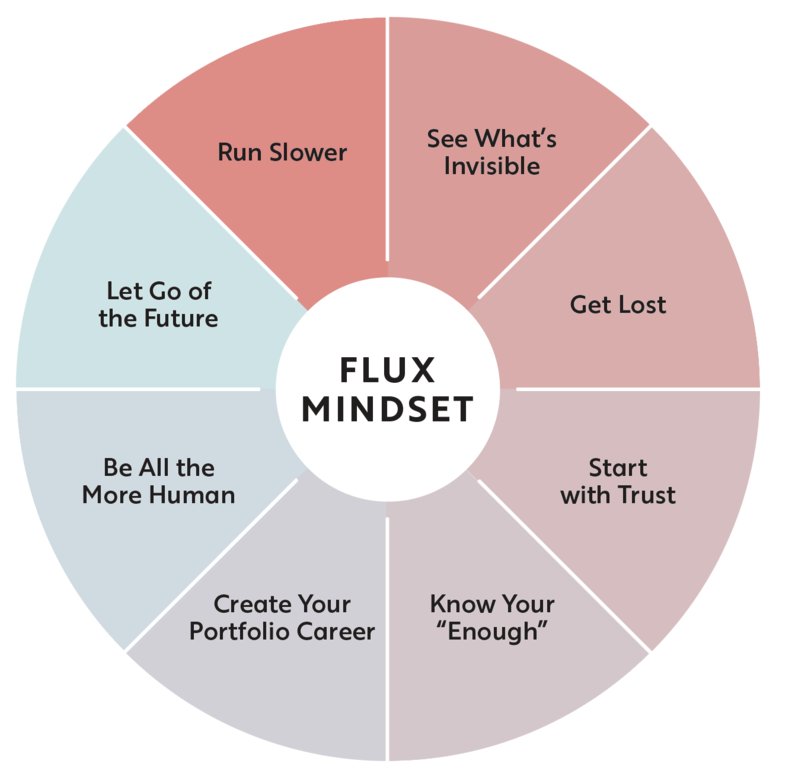I first heard of futurology about 10 years ago. It sounded like something out of science fiction. So I was surprised to discover that this discipline stretches back at least 2,000 years – albeit with a variety of names.
This made me wonder, what did those early futurists get right? But, when I spoke to real-life futurist April Rinne, I learned that this question was irrelevant. Futurists don't predict the future, Rinne told me. Rather, they explore all the things that could possibly happen, and what their effect might be on individuals and society as a whole.
Rinne's new book, "Flux: Eight Superpowers for Thriving in Constant Change," is a handbook for budding futurists. It's full of insights and tips from Rinne's impressive career as an adviser on change to governments and organizations large and small.
Sadly, her journey to "Flux" began with a tragic event that came out of nowhere. Both her parents were killed in a car accident when Rinne was just 20 years old.
Futurism is as much about the present as the future, Rinne says. It's about asking ourselves, what should we be doing today to create a better tomorrow?
"It's a lot of what we call 'scenario mapping.' So mapping out different scenarios for what could happen, and then starting to prepare for them – not bulletproof, watertight solutions… but to help organizations prepare and just be ready for the kinds of things that could happen," she explains.
Experts like Rinne can help people to see change coming from outside their direct line of sight. This is the realm of the unknown unknowns – as well as the unknown knowns.
"Some of the macro forces… may not be in your sector or in your discipline, but absolutely are going to have an effect on what happens to your industry, to your organization, moving forwards – the role of technology, the role of public health," she elaborates. "There are lots of examples we can point to, even over the last year, that you start going, 'Wow, the future could play out in lots of different ways.'"
The eight "superpowers" in Rinne's book help individuals and organizations to respond positively and productively to change – what she calls "the flux mindset." Instead of expecting upset and disorientation, we can all make a conscious decision to look for opportunity and growth.

One superpower with a broad application is "see what's invisible." Part of that is the aforementioned set of unknowns. But another part is closer to home.
"I often put this as: what was I blind to, what couldn't I see? A big one for me was actually my own anxiety," Rinne admits. "When I learned to see what's invisible and just how bad my anxiety was wracking me and not helping me live a full or meaningful or productive life, that was the wake-up call, and honestly, it just made so much difference."
In her book, April Rinne shares one of the strategies that helped. When we're anxious about change, our brains typically go into "doomsday mode." We dwell on the worst that could happen.
"But there's a really interesting, small but subtle and important shift that we could make," she says. "When change happens, rather than saying, 'What's the worst thing that could happen?' ask yourself, 'What's the best thing that could happen as a result of this change?' Go wild with just how awesome this particular change could be!"
This goes to the heart of her message: develop a "flux mindset." Choose how you respond to change and feel the difference. It really is all in the mind.
Her last superpower, "let go of the future," illustrates this perfectly – although it may sound like an unlikely tip from a futurist.
"To thrive in a world in constant flux, we need to be able to let go of the future, get out of our own way, in order to allow a better future to emerge," April Rinne clarifies. "You cannot control the future that's going to play out – neither you can, nor anyone can, candidly – but you can control whether and how you contribute to a future you'd like to see."
And there's an added bonus to this approach, which few people could predict.
"You also end up feeling a sense of relief," she reveals. "You end up realizing, oh, this isn't all on my shoulders. This is something we have to figure out together. If I can just let go of a little bit of this obsession with control, I actually find that freeing. I actually find that creating more headspace, more space in my heart to show up fully human."
Discover fascinating insights from some of the world's leading business figures with my series of Mind Tools Expert Interviews.
If you're not a Mind Tools Club member, you can join by clicking here, and access over 2,400 resources, including more than 200 Expert Interviews. For corporate licensing, request a demo from one of our team.

"I'd overcommitted myself – only to find I couldn’t possibly deliver on everything I’d promised. I had no choice but to communicate the issue in the best way I could."
"For some people, anxiety is a constant companion, even in situations where there’s no obvious reason for it. And it often goes hand in hand with a desire to achieve."
Have you ever tried to concentrate on a mentally taxing task when your belly is empty and sending you urgent signals to, "Please eat now!"? I know that happened a lot to me when I was young, and followed an endless series of diets. Food is one of our most basic needs – along with […]